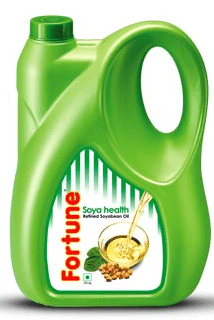Get the App
For Doctors
Login/Sign-up
Refined Oils ? and why you should never eat them
With the endless choices on the store shelves it?s hard to know which to choose. Butter vs. Margarine, extra virgin olive oils, refined oils like vegetable and canola.
There is evidence pointing in the direction that it isn?t animal fats causing our epidemic levels of heart disease, but vegetable oils. Research is showing that butter consumption at the turn of the century was about 18 lbs per person per year and the use of vegetable oils was non existent. Cancer and heart disease were rare. Today butter consumption is just above 4 lbs per person per year while the use of vegetable oils and refined oils has soared.
What are refined oils and which ones should you avoid?
Definition: An oil has been refined by using chemicals that are harmful to us. In short it means to ?purify?. But the meaning of purify has many definitions. It may mean the oil was treated with acid, or purified with an alkali, or bleached. It can also be neutralized, filtered or deodorized. All of which require chemicals like Hexane!
Click here for a look into HOW oil gets refined.
In the process of making and refining these types of oils, it leads to PUFas (rancid polyunsaturated fatty acids) which DO NOT hold up well to high heats. In the process of being extracted from the seed these oils oxidize and turn into trans fats. The smell is so rancid that a cleaning process has to take place using bleach to deodorize it.
But most of all AVOID Hydrogenated oils (Crisco and margarine) ~ This is one of the most dangerous products on the market today! It has actually been BANNED in 2 European countries, but not ours.
Hydrogenated oil is made by forcing hydrogen gas into oil as high pressure. The more solid the oil is the more hydrogenated, such as margarine and Crisco or lard. When hydrogenated oils are made the healthy fats are converted into a new type of fat, known as trans fat. This is the one subject that you will find an overwhelming agreement from Doctors, scholars, and scientists alike. Trans fats should be avoided while healthy fats (found in olive oil, nuts and avocados) should be eaten.
Trans fats are so bad for you, the FDA estimated approximately 95% of prepared cookies, 100% of crackers and 80% of frozen breakfast products contained trans fats [Govt Publishing Office] Now that trans fats have to be labeled on products, most companies have removed them from their products. Sneaky, huh?
The problem now isn?t our own kitchens, but what if we dine out? How do we know what restaurants are using? Well California?s governor recently signed legislation to phase out trans fats from restaurants and baked goods in bakeries [Natl Conference of State Legislatures]. (Too bad I don?t live in CA) and New York city became the largest city in the nation to demand restaurants, cafeterias and schools go trans free.
The best advice I can give is to ASK. I ask everytime we go out now if the dressing coming with the salad is homemade or store bought. I ask what types of oils they use when they cook. I ask where they get their vegetables. Don?t turn a deaf ear. Most restaurants will put the bottom line (their profits) over your health. I hate to say that, but it?s true.
So which oils are safe then?
With the endless choices on the store shelves it?s hard to know which to choose. Butter vs. Margarine, extra virgin olive oils, refined oils like vegetable and canola.
There is evidence pointing in the direction that it isn?t animal fats causing our epidemic levels of heart disease, but vegetable oils. Research is showing that butter consumption at the turn of the century was about 18 lbs per person per year and the use of vegetable oils was non existent. Cancer and heart disease were rare. Today butter consumption is just above 4 lbs per person per year while the use of vegetable oils and refined oils has soared.
What are refined oils and which ones should you avoid?
Definition: An oil has been refined by using chemicals that are harmful to us. In short it means to ?purify?. But the meaning of purify has many definitions. It may mean the oil was treated with acid, or purified with an alkali, or bleached. It can also be neutralized, filtered or deodorized. All of which require chemicals like Hexane!
Click here for a look into HOW oil gets refined.
In the process of making and refining these types of oils, it leads to PUFas (rancid polyunsaturated fatty acids) which DO NOT hold up well to high heats. In the process of being extracted from the seed these oils oxidize and turn into trans fats. The smell is so rancid that a cleaning process has to take place using bleach to deodorize it.
But most of all AVOID Hydrogenated oils (Crisco and margarine) ~ This is one of the most dangerous products on the market today! It has actually been BANNED in 2 European countries, but not ours.
Hydrogenated oil is made by forcing hydrogen gas into oil as high pressure. The more solid the oil is the more hydrogenated, such as margarine and Crisco or lard. When hydrogenated oils are made the healthy fats are converted into a new type of fat, known as trans fat. This is the one subject that you will find an overwhelming agreement from Doctors, scholars, and scientists alike. Trans fats should be avoided while healthy fats (found in olive oil, nuts and avocados) should be eaten.
Trans fats are so bad for you, the FDA estimated approximately 95% of prepared cookies, 100% of crackers and 80% of frozen breakfast products contained trans fats [Govt Publishing Office] Now that trans fats have to be labeled on products, most companies have removed them from their products. Sneaky, huh?
The problem now isn?t our own kitchens, but what if we dine out? How do we know what restaurants are using? Well California?s governor recently signed legislation to phase out trans fats from restaurants and baked goods in bakeries [Natl Conference of State Legislatures]. (Too bad I don?t live in CA) and New York city became the largest city in the nation to demand restaurants, cafeterias and schools go trans free.
The best advice I can give is to ASK. I ask everytime we go out now if the dressing coming with the salad is homemade or store bought. I ask what types of oils they use when they cook. I ask where they get their vegetables. Don?t turn a deaf ear. Most restaurants will put the bottom line (their profits) over your health. I hate to say that, but it?s true.
So which oils are safe then?



+1.svg)
